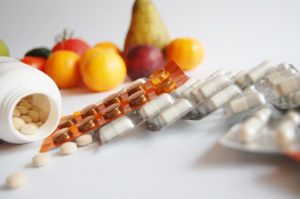First-aid kit for a Tobago holiday
Before going on holiday to Tobago in the Caribbean, a lot of time is often invested in the choice of destination, accommodation and leisure programme. The same care should also apply to the composition of the first-aid kit and the observance of certain rules. We have addressed fundamental points in the area of “Safety & Health”. On this page we have collected tips on how to avoid illnesses and accidents as well as the most important medicines and materials for the first-aid kit.
1. At the latest six weeks before the journey the family doctor or a well trained pharmacist of the confidence should be contacted. In particular, when trips to remote areas are planned or possible, the need for vaccinations or other precautions should be discussed. Your personal health should also be checked again on this occasion and any necessary medication should be ordered. No vaccinations are currently required for Tobago itself, but an individual consultation is recommended.
2. A well-assorted first-aid kit is a must in a suitcase. Pain-relieving drugs are just as much a part of Basis as disinfectants and help against gastrointestinal complaints. We have put together some tips in the list below.
3. A travel health insurance abroad protects in case of unforeseen events. Before taking out the insurance and commencing the journey, it is essential to clarify the scope of the service package.
4. Obtain information on the medical care of the destination and local doctors, health centres or hospitals. For Tobago we have put together a list including the contact details.
5. Please bring any urgent or potentially required medication with you. Tobago has some well-stocked pharmacies, but special medicines usually have to be ordered. It is also not guaranteed that the composition is identical to the version known in Germany / Europe. It should also be noted that some medicines are subject to certain import restrictions.
6. In particular, mosquitoes are not only a nuisance but also a potential vector of disease. A net over the bed, if necessary protective clothing during visits in the rainforest and a good insect repellent with DEET (e.g. Antibrumm) repel the little pests.
7. The sun is much more intense in the Caribbean than in many other parts of the world. Even if there are clouds in the sky, good sun protection is important. Sun cream and sun glasses protect the body, sufficient rest in the shade gives the body new energy and prevents dehydration. On the beach we recommend places under trees (Attention: watch out for falling coconuts!) or a beach shell.
8. Walking barefoot is comfortable, but can also be dangerous. Carelessly disposed of glass and sharp coral pieces can lead to nasty cuts to the foot, especially on the beach. Lightweight, closed beach shoes not only protect, but offer better grip than flip-flops.
9. Never drink unpurified water, not even to brush your teeth. In case of doubt, the host or the reception will inform you about the local water quality. Drinking water can usually be purchased cheaply in all mini and supermarkets.
10. Only eat well cooked, baked or roasted food. Also make sure that fruit and vegetables have been cooked, peeled or at least washed with drinking water.
11. Before swimming in rivers or lakes, ask for information about water quality and possible shoals or currents.
12. Road traffic in Tobago is much less intensive than in Europe. Nevertheless, traffic accidents are not excluded and are also a source of danger for tourists. Motorcycles should only be rented by experienced riders and potholes must be taken into account. When renting cars and motorcycles, it is essential to have a reputable provider with technically flawless vehicles. In the car, fasten your seat belt and wear a helmet on the motorcycle. All recommendations are also valid for cyclists!
In the well-assorted first-aid kit belong remedies for the following cases. The respective drugs are to be understood as proposals. Please make sure to ask your doctor or pharmacist in advance about the compatibility.
1. Insect bites / sunburn, e.g. antihistamine gel, possibly with hydrocortisone. Electric bite healers can help with mosquito bites.
2. Protection against insects / mosquitoes / ticks, mosquito repellent, absolutely with the active ingredient DEET, e.g. Antibrumm
3. Travel sickness, Antivertiginosa as tablets or chewing gum e.g. Vomex, Superpep
4. Headache / toothache / aching limbs / fever / cold, e.g. Paracetamol, Ibuprofen
5. Bruises / strains, e.g. heparin ointment, diclofenac ointment / gel
6. Stomach Trouble,e.g. Iberogast
7. Abdominal cramps, e.g N-butyl scopolamine
8. Burns / wounds / water bubbles
Panthenol ointment / spray, disinfection spray, iodine ointment
9. Painkillers, e.g. Ibuprofen, Paracetamol
10. Earache, e.g. Otalgan drops, Otolitan N drops, Normison
11. Eye inflammation e.g. Yxin Eye Drops, e.g. Berberil N eye drops, Bepanthen eye ointment
12. Sore throat, e.g. Dorithricin Tablet
13. Cough, e.g. Silomat Dragees/Drops, Prospan Drops
14. Cold, e.g. Sinuforton Dragees, Nasivin drops, Otriven drops, Olynth nasal spray for adults / children
15. Diarrhea, e.g. loperamide, electrolyte powder, rifaximin (xifaxan)
You see that for a trip to Tobago in the Caribbean the same tips apply as for most other destinations. We wish you a healthy journey and hope that you don’t need the above mentioned medicines during your Tobago Holiday!


